As the 2024 Iowa caucus and New Hampshire primaries loom just shy of two months away, Republican presidential candidates have intensified their campaign efforts, and the list of contenders has dwindled.
After four GOP candidate debates, voters now have a more robust grasp of the candidates’ policy positions, promises and priorities as the nation approaches a highly anticipated and contentious election season.
However, it is worth asking how many voters are keeping up with the political discourse leading up to the high-stake primaries. Debate viewership has progressively dwindled, starting at around 12.8 million for the first debate and dropping to less than 7 million for the third. These figures are part of the larger context of about 210 million registered voters, with roughly 38.8 million identifying as Republicans.
Junior Elizabeth Liu, an independent, observes that the debates might be disconnected from younger populations, not just in content but also in how they are delivered.
“These debates are being held on cable television, which has become very unpopular as of late with the rise of the internet and streaming platforms,” she said.
“Watching popular snippets or the dramatic outbursts of candidates posted on social media distracts from learning the policy opinions of the candidates,” she added.
In light of the consequential stakes of this election, the low level of debate viewership is concerning.
Historically, primary voter turnout has consistently lingered below or around 30%, contrasting with the general election, where turnout tends to be roughly twice as high. Unite America, a grassroots organization dedicated to bridging the partisan divide, suggests that the “primary problem” has been exacerbated by the current polarized political dynamic. They found that in 2020, only 10% of eligible American voters voted in 83% of congressional seats in the primary election.
It is also worthwhile to ask what type of voters show up to cast their votes. A 538 analysis revealed that Republican primary voters stand further right in the political spectrum than the broader American electorate.
According to Social Studies teacher Pam Crossman, the influence of these more radical primary voters prompts candidates to align with more extremist ideologies in the initial phases of the campaign, only to pivot back towards a moderate stance upon securing the nomination for the general election.
Ultimately, nonvoters, whether due to apathy, frustration, or disengagement, inadvertently magnify the influence of extremist voters by abstaining from the political process.
Crossman not only encourages eligible students to vote but urges all her students to watch the debates and read the news regardless of preconceived political affiliations.
“I think that even if you are a person that is leaning liberal, it’s important to understand what the other side is talking about, what they value, and what they want to focus on because whether we like it or not, one of those individuals could be our president,” she said.
Candidates
Donald Trump
Former President Trump is seeking reelection in the wake of the tumultuous events concluding his last term, marked by the January 6 insurrection. Currently, he is dealing with four criminal indictments.
Benefitting from the narrative of a “stolen” 2020 election, Trump’s 2024 win would secure him the distinction of becoming the only president to win non-consecutive terms after President Grover Cleveland.
Drawing on his background in real estate development, television hosting and business, Trump’s policy agenda for a potential next term appears more assertive than in his first term. His agenda includes advocating for stringent immigration policies, initiatives to curtail the federal bureaucracy, an aggressive approach to trade and limitations on entitlement programs.
Currently, Trump has a sweeping lead in the polls despite not attending a single debate. He is almost 50 percentage points ahead of Ron DeSantis, who falls in second place.
More significantly, Trump is ahead of Biden in critical battleground states, where constituents are disappointed by the current economic conditions and social issues. The New York Times has also reported a realignment of some elements of party coalitions with diminishing Black and Hispanic support for Biden.
Nonetheless, the political climate is susceptible to significant change and even complete reversal with a little less than a year ahead of the presidential election and Trump’s legal cases underway.
Social studies teacher John Perse explained the political currents that have made Trump so popular.
“I don’t think he created the forces and the ideas that have elevated him,” Perse said. “But I think he took advantage of some of those latent attitudes that people felt and galvanized them.”
Trump’s extremist ideology offers an attractive alternative to those who feel abandoned by the current governmental structure.
“When someone comes along and says, ‘I don’t care about the structure, and I’m going to get rid of the structure,’ I understand the emotional appeal,” Perse said. “Unfortunately, people don’t consider what that’s going to look like in reality. Once the momentary feeling of satisfaction dissipates, we may end up in a place much worse in certain ways.”
Perse suggests some historical parallels can be drawn to Trump.
“I think Andrew Jackson, who chipped away at and changed the existing structure, did not completely abandon or eliminate it,” he said. “And I do think Jackson represented the views of a majority of the American people, whether those views were appropriate or not. I’m not sure Trump does.”
Ron DeSantis
Governor DeSantis’s pre-political background involves distinguished service in the US Navy and academic pursuits at Yale University and Harvard Law School. He began his political journey by representing one of Florida’s northeast districts in the House, fervently supporting the Trump administration throughout his terms.
Achieving political prominence during the pandemic, he expanded the executive branch as governor, opting for minimal public and social restrictions amid the health crisis. While DeSantis isn’t the sole catalyst for the red wave in Florida, his policies have significantly amplified the movement.
Some of the policy changes in Florida are particularly relevant to students, such as restrictions on AP Psychology, which prohibit teaching chapters on gender identity and sexuality, and a ban on AP African-American studies. LGBTQ+ rights, women’s reproductive rights and classroom curriculum have all faced constraints due to a plethora of new laws signed by DeSantis, foreshadowing the tone of his presidential agenda.
Nikki Haley
Nikki Haley launched her political career in 2004 in the South Carolina House of Representatives and then ran for governor after serving as a congresswoman for six years. She was the first female governor of the state and the youngest governor in the nation. In 2017, she was appointed as the 29th United States ambassador to the United Nations by former President Trump. However, after Jan. 6, she has adopted an anti-Trump rhetoric, becoming a proponent for new leadership in the GOP party.
While Haley’s campaign is not merely based on “identity politics,” as the only female contender and a first-generation American, Haley’s background attracts a diverse coalition of voters, especially considering women constitute nearly half of the GOP primary electorate.
Nonetheless, she has faced severe criticism from her competitors but has used the attention to elevate herself and bring attention to her experience.
“She’s constantly having to prove herself in ways that her colleagues on the stage likely don’t,” Crossman said. “I think her messaging has gotten better, which is reflective of her receiving bigger endorsements.”
Haley has recently garnered support from super PACs backing her, along with endorsements from Wall Street and the influential conservative grassroots organization Koch Network.
Vivek Ramaswamy
With an arguably similar path into the political battlefield as Trump, Ramaswamy boasts a successful professional career in biotechnology entrepreneurship stemming from his academic background at Harvard and Yale Law School. Ramaswamy authored “Woke, Inc.,” a New York Times bestseller in 2021.
He openly praises Trump’s approach, adopting a strategy that positions him as a viable running mate if Trump emerges victorious. As the youngest candidate, Ramaswamy considers himself the voice of the next generation, though his policies may be contrary to popular perspectives among younger voters.
Chris Christie
Chris Christie has served as the attorney general and governor of New Jersey, defeating a Democratic incumbent. After withdrawing from the 2016 presidential race, he endorsed President Trump, becoming one of his close advisors.
However, Trump’s endeavors to provoke insurrection and to contest the 2020 election turned Christie into a fierce political rival. Notably, Christie’s current campaign stands as a palpable antithesis to the ethos of the Trump campaign.
Others
Asa Hutchinson has not yet dropped out of the race despite polling less than 1% and being absent for all debates with the exception of the first. Hutchinson has an extensive career in public service, from being an attorney to serving on the House of Representatives, holding two positions in the Bush administration and serving as governor of Arkansas from 2015 to 2023.
Recent dropouts include Doug Burgum, Tim Scott and Mike Pence, among others.
Hot Button Issues Discussed in the Debates
Foreign policy
While there is a general consensus among the candidates regarding their support for Israel, divisions arise when it comes to their approach to the Russia-Ukraine war. Nikki Haley, in particular, emphasizes substantial support for Ukraine. Her stance is a crucial component of the broader strategy to curb Russian ambitions that could affect NATO allies and potentially trigger Article 5 of collective defense under the treaty—an action invoked only once, post-9/11.
This approach aligns with the goal of maintaining a balance of power in Europe to ensure security and stability at home. Haley’s experience in foreign policy as the UN ambassador backs her viewpoints; however, other candidates may be short-sighted in their vision.
For example, Ramaswamy calls for withdrawing aid from the region. This strategy is motivated by concerns about Russia forming stronger alliances with China and, potentially, North Korea. Furthermore, isolationism is justified as a means of prioritizing American interests and ensuring economic protection.
In light of the recent turbulence in international affairs, Crossman underscores the interrelated nature of developments in Israel and Ukraine, as well as the intricate dynamics in American interactions and competition with nations such as China, Russia and Iran.
“Events and relationships don’t develop in a vacuum. All [the current] situations tie together,” she said.
Abortion
All Republican candidates have expressed pro-life views, with most candidates aggressively pushing for a federal ban.
Junior Taia Menefee, a Democrat, worries about the future of women’s reproductive freedoms.
“I think, although the Dobbs decision leaves matters of abortion up to the states, I think a Republican president could potentially implement stricter federal restrictions on abortion access,” she said.
Crossman believes some candidates’ approach, specifically those who advocate for a national ban, is inconsistent with the Dobbs v. Jackson Women’s Health Organization ruling.
“The Dobbs’ decision was about returning authority to the states, and suddenly, we have a party that is very much in favor of states’ rights now saying we need to tip that balance back to the federal government,” Crossman said. “I think that voters see that as not making sense.”
She also highlighted how candidates face a dilemma between addressing the different expectations of different groups of voters.
“But I think that [some candidates] use the idea of abortion more as a way to attract voters that feel very strongly about it, but they risk alienating moderate voters, especially suburban white women and swing voters,” she added.
The practicality of enacting a federal ban is likely out of reach, given the closely divided Congress, a point that Haley has repeatedly underscored.
Opioid crisis
The opioid epidemic has cost thousands of American lives and shattered families. Republican candidates have focused on the inundation of fentanyl and fentanyl-laced substances from foreign sources. However, underlying domestic causes, such as the systemic shortcomings of the public health system, inequalities in rehabilitation services and the vested interests of big pharmaceuticals, have not been thoroughly debated.
UCLA Health reported a 50-fold increase in deaths caused by overdose of fentanyl-laced stimulants in the past 13 years, which is partly attributed to numerous children and innocent individuals being accidentally exposed.
Candidates have vociferously centered their solutions around getting tough on border security, thwarting cartel channels and holding Mexico accountable. This issue has been oversimplified in the candidates’ discussions.
Critical issues such as the strategic aspects of the U.S.-Mexico trade relations and the integration of the cartel system within the Mexican government have only been touched upon superficially in debates.
Other Issues
In addition to the opioid crisis, abortion and foreign policy, candidates have also discussed immigration, energy dominance, entitlement programs and many other issues. However, during the last four debates, there was a constant unsettling tension between the candidates, as evidenced by the vehement antagonism and lack of composure in their speech, tone and body language.
“It seems like they’re debating to get the sound bite and not to get the vote,” Crossman said.
Liu expressed discontent to see the lack of cooperation and, at times, civility in the debate.
“I think something very disappointing to young voters right now is the level of political polarization and just how uncompromising both parties are, internally and towards one another,” she said. “They’re more concerned about competing against each other rather than coming together to serve the American people.”
Menefee believes that issues most relevant to youth are not stressed in the debates, and the candidates don’t offer views appealing to teens and young voters, causing the youth to distance themselves from watching debates and keeping up with the politics leading up to the primaries.
“I think that abortion, environmental issues and student loans are most relevant to young people,” she said. “I think many of us feel like no candidates accurately represent our views or will take our perspectives into consideration.”
Nevertheless, Menefee looks forward to being politically informed about the candidates and media coverage leading up to the upcoming primaries and the presidential election. She urges her peers to follow suit.
“It’s important to be informed about who’s on your ballot when next November comes,” Menefee, who watched some of the debates, said. “I think debates are a great way to illustrate different candidates’ personalities, views and ideas.”
Engaging with the debates, irrespective of one’s political stance, is a crucial first step toward understanding and analyzing political positions across the ideological spectrum and can help students learn about their own values and beliefs, too.




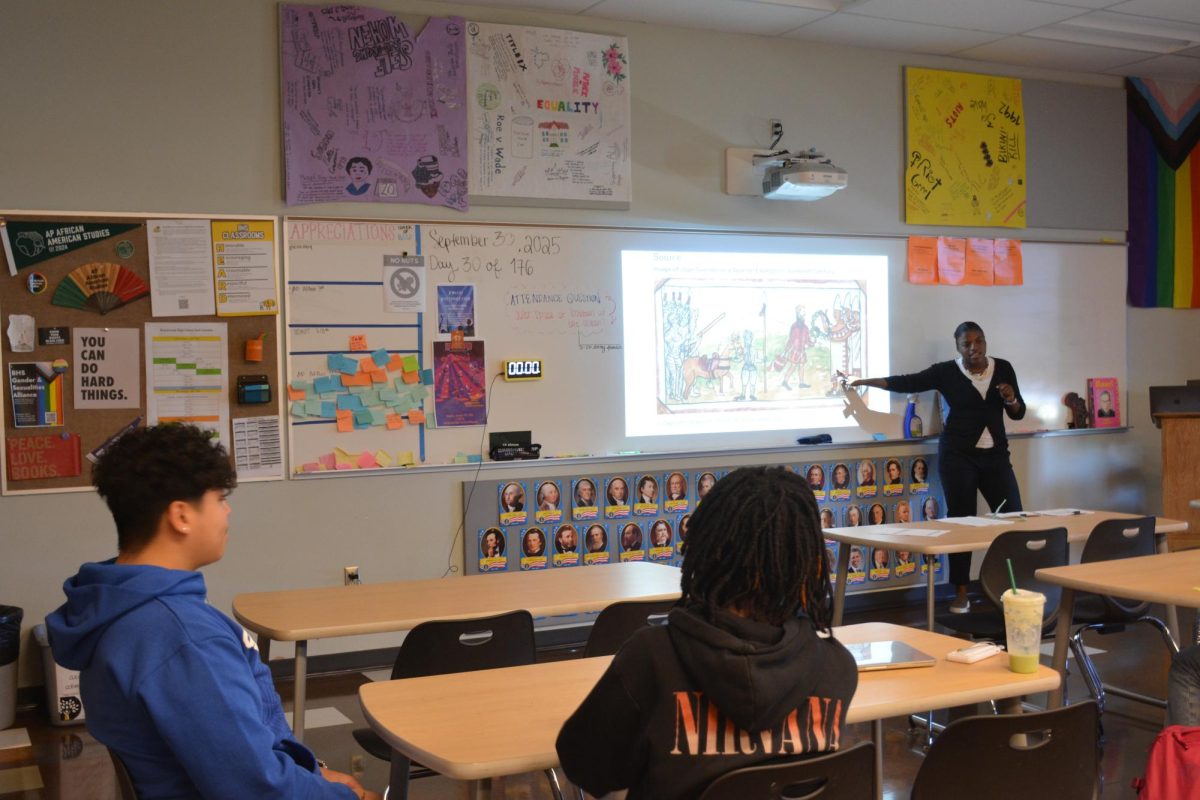

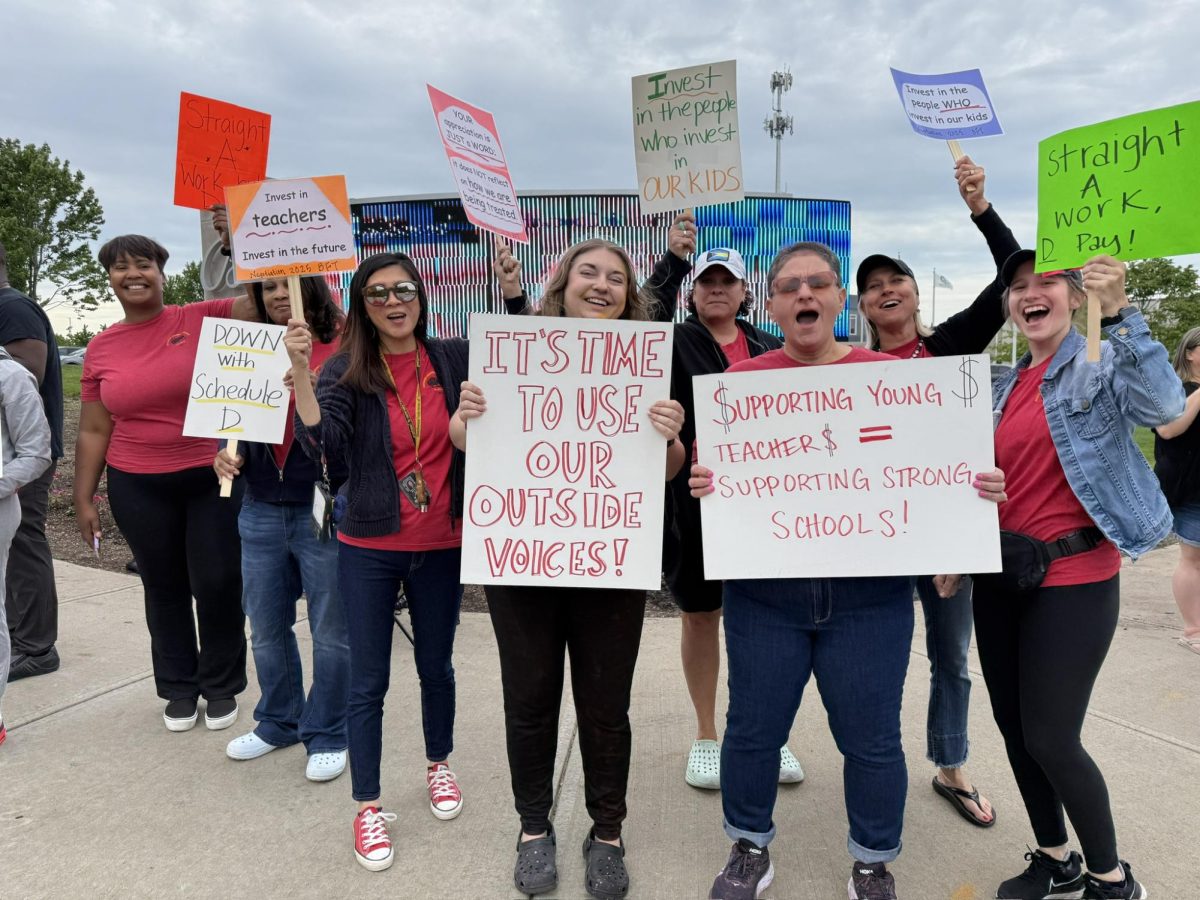
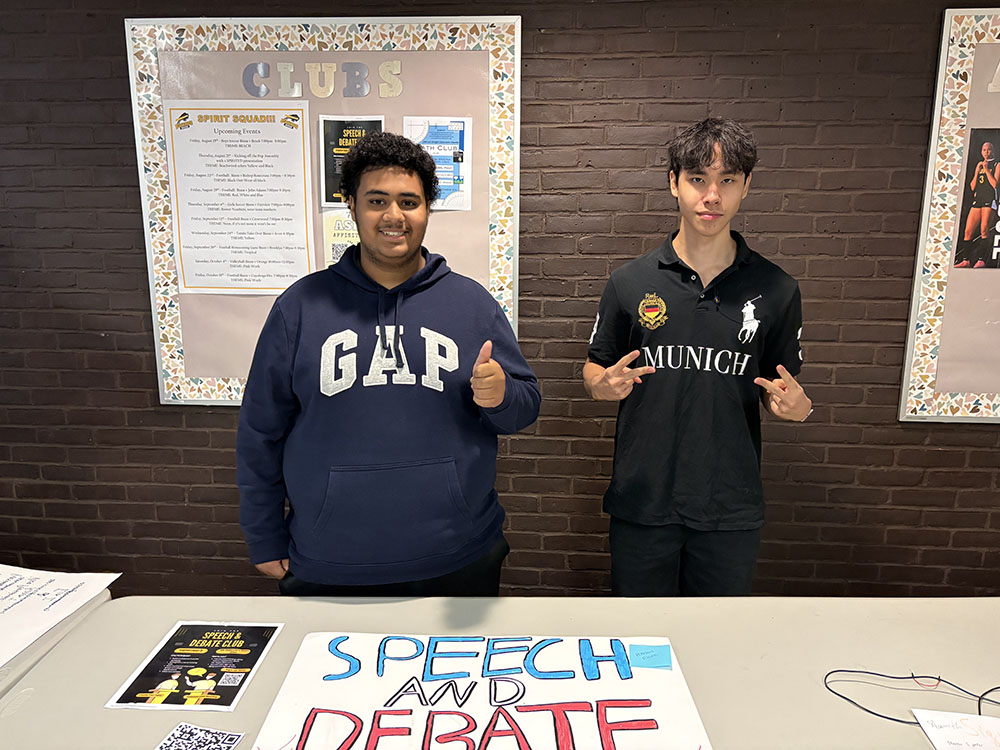
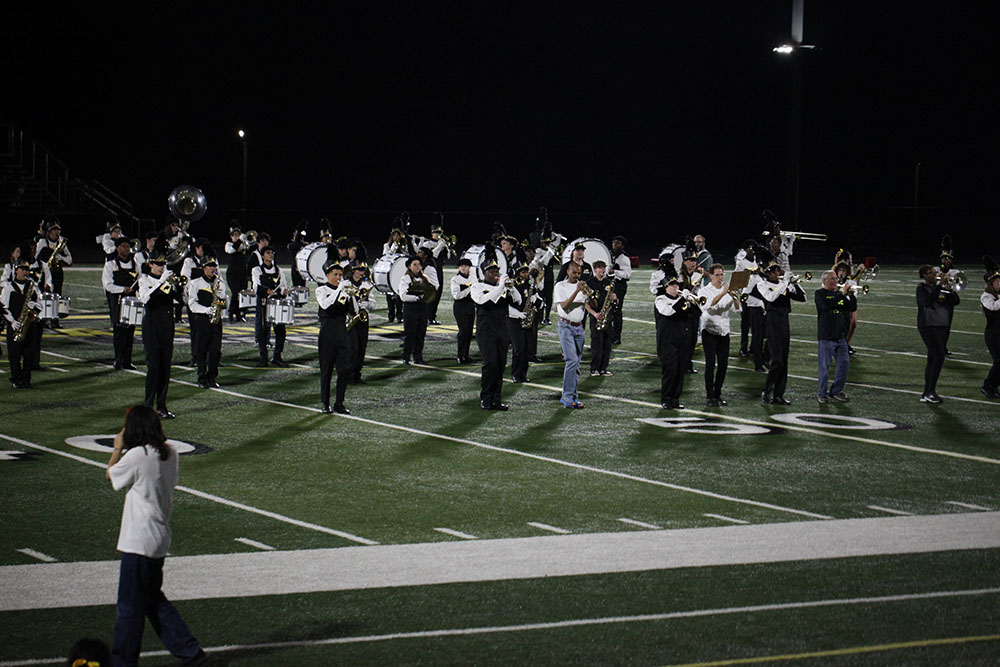

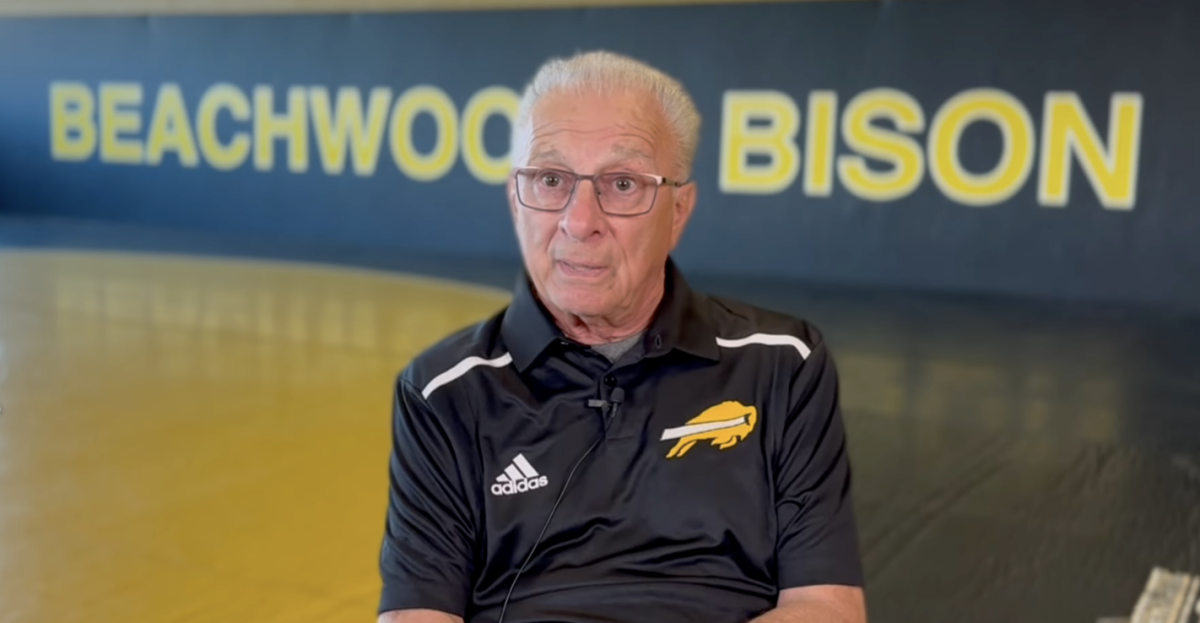



Sreedhar Nair • Jan 28, 2024 at 11:24 PM
Agree that Engaging with the candidates, elected officials, irrespective of one’s political stance, is a crucial first step toward understanding and analyzing political positions across the ideological spectrum.
Enjoyed reading the perspectives of teachers and students. Thank you for bringing this well analyzed article for reader’s benefit.